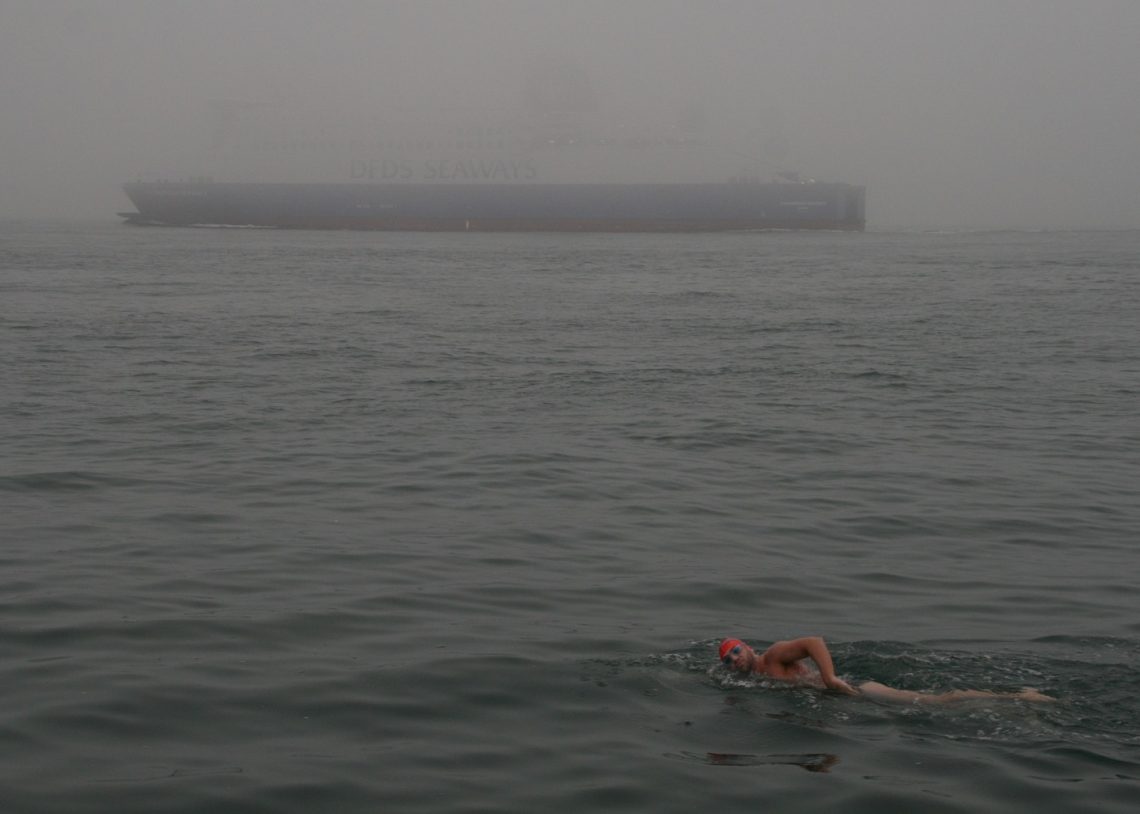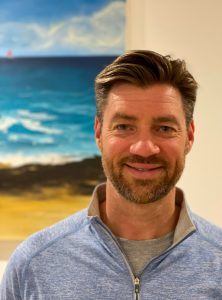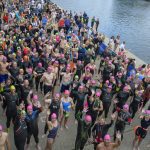
Swimming the Lakes – as fast as possible
Matt Dawson wants to swim the 13 publicly accessible lakes of the Lake District in a record time
Outdoor Swimmer: Please tell us more about your 2023 challenge
Matt: I’m planning to consecutively swim the 13 publicly accessible lakes in the English Lake District (Windermere, Ullswater, Coniston, WastWater, Elterwater, Rydal Water, Grasmere, Brotherswater, Derwent Water, Loweswater, Crummock Water, Bassenthwaite and Buttermere), which equates to just over 70kms of swimming and more than100kms of driving. The current record or fastest known time is 41 hours. I’m going to try to beat that.
Why this challenge?

Since swimming the English Channel I’ve spent the past 10 years doing a variety of multisport, multi-day or other ultra-endurance challenges and I was really keen to focus on just swimming again. After setting a season’s best time for Windermere a couple of years ago, as part of an epic 3-stage triathlon (cycle the width of England, swim Windermere and run the London Marathon), I felt like there was more to be done in the Lake District. I pondered swimming the three biggest lakes back-to-back. I pulled out a map and had a look at the whole of the area and immediately started planning something bigger. After a bit of research, I discovered that a few people had swum the 13 lakes and it felt like the perfect challenge for me. I also did some calculations on the back of a napkin and worked out I could at least have a good go at trying to beat the current record and that sparked my interest even more.
Do you have any particular connection with the Lake District?
I’ve swum, cycled and hiked in the Lake District and absolutely love the area, it’s such a beautiful part of the country. The more I go, the more I want to explore.
What response have you had from people who have previously done the 13 lakes challenge?
In doing my research I came across the current record holder – Danny Longman. I sent him a message asking if I could pick his brains on the challenge. He did a lot better than that, he agreed to meet me and after a long chat he sent me his planning notes with all of the information I needed to plan my route. We also discussed how to make this challenge and information open to more people and Danny is in the process of putting a website together, which I’ll link to on my blog when it’s live.
How are you training for this challenge?
The training has been a challenge in itself, to work out what the right volume should be. I’ve been ramping up the volume and intensity since the autumn. I’ve been following a periodisation approach, three weeks of progressive volume and intensity, peaking at 40km per week, followed by a week of recovery. I make the volume up by swimming six (sometimes seven) days per week and doing multi-day swims, both in the pool and open water. There have been highs – getting close to some old PBs – and lows, feeling very overtrained at times. In the last couple of months leading up to the swim, I will be concentrating the training over fewer days, to better simulate the event, whilst giving myself time to recover with more rest days. I’ve been training with my support crew so that we can work out the best type of boat (kayaks) and get used to communicating. We have a night swim planned to work the logistics of that out!
What do you think will be the most difficult part of the challenge?
This is going to be the longest non-stop challenge that I’ve done, so just completing it is going to be a huge challenge. I’ve done various 24hr+ events; 24-hour swims, a 25-hour cycle, a 30-hour canoe race and some multi-day events. What I’ve learned from those events is that the nighttime is the hardest, when you’re tired and cold, the dark just makes it worse. This is where I will struggle with negative thoughts and voices in my head begging me to stop. Other than things out of my control (mainly the weather), what plays on my mind most is whether I have done enough of the right type of training to get me through.
What measures will you take to protect the environment whilst doing this challenge?
This is really important and something we all need to be conscious about, not spreading invasive plant species between the lakes. It’s good practice to clean myself, my kit and the boats between each lake. The crew will be cleaning the boats and I’ll be switching between two wetsuits so that one of them is always being cleaned whilst I’m swimming. It’s going to be pretty unpleasant getting into cold wet wetsuits but it’s the right thing to do.
Why is it important to have these big challenges in your life?
I find that having big challenges like this gives me the motivation to push myself in training. When I’ve not had a challenge or event to focus on I find my training meanders meaninglessly and I don’t put as much in and therefore don’t get much out of the sessions. When I’m focused I get faster and stronger and find it easier to get up on dark, cold mornings to do a session. And I find myself doing things I never considered before. For example, now anything less than 30km swimming in a week seems like I’m cheating. Yet a year ago I was probably doing less than 10km most weeks.
How can people support and track you?
I will be having a GPS tracker on me for the whole event. I will share the link to that tracker on my JustGiving page and Blog.
I am raising money for Access Sport who believe all young people should be able to experience the power of sport regardless of ability, gender, background or ethnicity
Access Sport’s new Inclusive Swimming offer will create an environment where disabled children can learn how to swim and be safe in water. As many of us know swimming is an essential life skill that also supports many other areas of childhood development
I’m also in need of extra kit, to help with the transitions and to keep warm between swims. So, wetsuits, changing robes and spare tow floats would be very welcome.
Featured image: Matt in the English Channel








